Research Team
Primary Investigators

Megan Stubbs-Richardson, Ph.D.
Primary Investigator
Read More
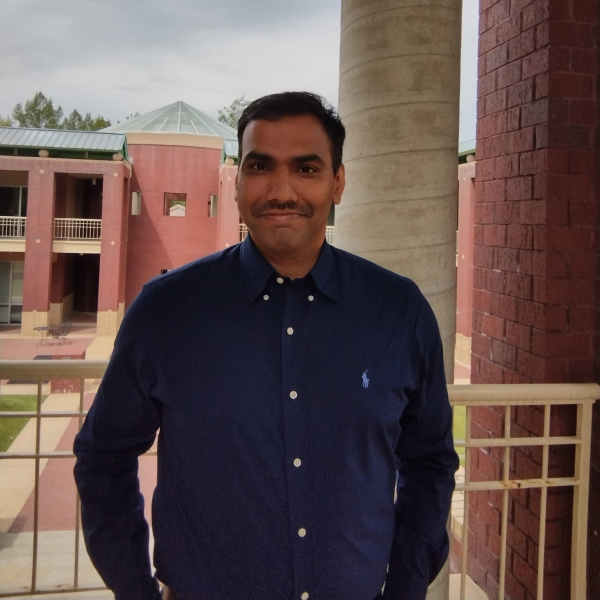
Sujan Ranjan Anreddy, Ph.D.
Co-Primary Investigator
Read More

Ben Porter, Ph.D.
CO-Primary Investigator
Read More

Megan Stubbs-Richardson, Ph.D.
Primary Investigator
Dr. Megan Stubbs-Richardson is an Assistant Research Professor at the Social Science Research Center (SSRC) of Mississippi State University. She co-directs the Data Science for Social Sciences Laboratory at the SSRC and is leading one of the missions of the laboratory to identify victimization patterns via social media analytics. Megan has been a PI or Co-PI on projects funded by the National Science Foundation (NSF), National Institute of Justice (NIJ), and the Department of Defense (DoD). She has been conducting social media data analyses at the SSRC since 2012. In her research, she uses publicly available information to identify crime patterns and trends for gender-based violence and crime prevention techniques. She is currently leading a team to identify emotions expressed online surrounding the COVID-19 pandemic as well as exposure to misinformation and counter misinformation using 10 social media and forum platforms for an NSF funded project.
Contribution to Project: Dr. Stubbs-Richardson oversaw the project goals and responsibilities and led bi-weekly meetings that were scheduled for the full team. Dr. Stubbs-Richardson also ensured Responsible Conduct in Research training requirements were met by the full team. She also worked with legal and other personnel on the appropriate handling of data in preparation for sharing the COPE-ID database.
Additionally, throughout the course of this project, Dr. Stubbs-Richardson supervised and mentored three undergraduate students (Georgiana Swan, Shelby Gilbreath, and Deborah Tolbert) who worked on various aspects of the project, such as literature reviews, data codification, building databases of keywords for search criteria, and writing on manuscripts. Meetings with each student were held on a weekly basis to discuss progress or best approaches to tasks needed for the project.
Dr. Stubbs-Richardson led on and oversaw the methods documentation for the 10 platforms which was uploaded to the COPE-ID database along with the data. She also co-led a team of students with Sujan on the removal of sensitive data from the final COPE-ID database. Finally, Dr. Stubbs-Richardson is lead author on both the misinformation study as well as the database paper which involved working closely with other team members often on a weekly basis to meet those two objectives.
Contribution to Project: Dr. Stubbs-Richardson oversaw the project goals and responsibilities and led bi-weekly meetings that were scheduled for the full team. Dr. Stubbs-Richardson also ensured Responsible Conduct in Research training requirements were met by the full team. She also worked with legal and other personnel on the appropriate handling of data in preparation for sharing the COPE-ID database.
Additionally, throughout the course of this project, Dr. Stubbs-Richardson supervised and mentored three undergraduate students (Georgiana Swan, Shelby Gilbreath, and Deborah Tolbert) who worked on various aspects of the project, such as literature reviews, data codification, building databases of keywords for search criteria, and writing on manuscripts. Meetings with each student were held on a weekly basis to discuss progress or best approaches to tasks needed for the project.
Dr. Stubbs-Richardson led on and oversaw the methods documentation for the 10 platforms which was uploaded to the COPE-ID database along with the data. She also co-led a team of students with Sujan on the removal of sensitive data from the final COPE-ID database. Finally, Dr. Stubbs-Richardson is lead author on both the misinformation study as well as the database paper which involved working closely with other team members often on a weekly basis to meet those two objectives.

Sujan Ranjan Anreddy, Ph.D.
Co-Primary Investigator
Dr. Sujan Anreddy joined SSRC in January 2018 as a computer specialist, and after completion of his PhD, he was named an assistant research professor. He currently works on the Health Resources and Services Administration (HRSA) funded project, “Child Health and Development Project” where he is designing and managing an integrated database that links educational records from MS Department of Education (MDE) with health records from the Division of Medicaid and the Mississippi State Department of Health. As part of managing this integrated database, he deals with technical issues related to system maintenance and data quality such as integration, consistency and integrity and provides support to data analysts. Additionally, given his expertise in data visualization, he provides the SSRC with the capacity to develop data dashboards and interactive visualizations. He holds a doctorate degree in Computer Science from Mississippi State University with a specialization in data visualization. His expertise and research interests include applying, and evaluating machine learning algorithms, building visual patterns using interactive visualization techniques to help analysts explore, identify, and comprehend big data features at multiple levels.
Contribution to Project: Dr. Sujan Anreddy coordinated with graduate and undergraduate Computer Science students in compiling the COPE-ID database from 10 different social media platforms. He worked with students in reviewing their technical blogs, and in helping students present for university held research symposiums. In addition, Dr. Sujan Anreddy co-led a team of students with Megan on the removal of sensitive data from the final COPE-ID database. Finally, he worked on using a parallel coordinate plot that was used for visualizing Covid-19 related hashtags from Jan 2020 to December 2020.
Contribution to Project: Dr. Sujan Anreddy coordinated with graduate and undergraduate Computer Science students in compiling the COPE-ID database from 10 different social media platforms. He worked with students in reviewing their technical blogs, and in helping students present for university held research symposiums. In addition, Dr. Sujan Anreddy co-led a team of students with Megan on the removal of sensitive data from the final COPE-ID database. Finally, he worked on using a parallel coordinate plot that was used for visualizing Covid-19 related hashtags from Jan 2020 to December 2020.

Ben Porter, Ph.D.
CO-Primary Investigator
Dr. Ben Porter is an Assistant Research Professor at the Social Science Research Center of Mississippi State University. He holds a PhD from University of Houston in Social Psychology where he studied positive psychology in relation to romantic relationship functioning. Ben’s recent research has focused on various health and occupational outcomes of military service members and veterans. He has extensive training and experience in advanced data analytics including latent trajectory analysis, missing data theory, and using data with complex structures. He is the PI of a grant providing analytic services to the Mississippi Office of Highway Safety and Co-PI on a National Science Foundation funded project examining scams and anxiety related to the COVID-19 pandemic.
Contribution to the Project: Dr. Porter was responsible for identifying and collecting external data sources for the project. He collected demographic data from the American Community Survey (at the census track level), covid-related self-report from the Household Pulse Survey and Delphi CovidCAST project (at the state and county level, respectively), public health policies (at the county level), and Facebook social connectedness index (not usable due to correlation between area population and connectedness).
Dr. Porter was the lead investigator on the emotions paper. He was also the primary supervisor of Ms. Mitchell throughout the study. This entailed weekly meetings on current progress and discussing articles and how they can be incorporated into manuscripts. Additionally, he helped Ms. Mitchell develop the idea for the project examining emotions related to public health policy that she was lead on, and he helped her apply for intramural funding to continue this line of research.
For the scam study, he coded 1100 documents from the included social media sites on factors including relevance, whether it was a news article, general misinformation, general counter misinformation, vaccine-related misinformation, and vaccine-related counter misinformation. Additionally, he provided inter-rater reliability analyses and met with Dr. Stubbs-Richardson to resolve all instances of disagreement between raters.
Contribution to the Project: Dr. Porter was responsible for identifying and collecting external data sources for the project. He collected demographic data from the American Community Survey (at the census track level), covid-related self-report from the Household Pulse Survey and Delphi CovidCAST project (at the state and county level, respectively), public health policies (at the county level), and Facebook social connectedness index (not usable due to correlation between area population and connectedness).
Dr. Porter was the lead investigator on the emotions paper. He was also the primary supervisor of Ms. Mitchell throughout the study. This entailed weekly meetings on current progress and discussing articles and how they can be incorporated into manuscripts. Additionally, he helped Ms. Mitchell develop the idea for the project examining emotions related to public health policy that she was lead on, and he helped her apply for intramural funding to continue this line of research.
For the scam study, he coded 1100 documents from the included social media sites on factors including relevance, whether it was a news article, general misinformation, general counter misinformation, vaccine-related misinformation, and vaccine-related counter misinformation. Additionally, he provided inter-rater reliability analyses and met with Dr. Stubbs-Richardson to resolve all instances of disagreement between raters.
Research Team

Cindy L. Bethel, Ph.D.
Read More
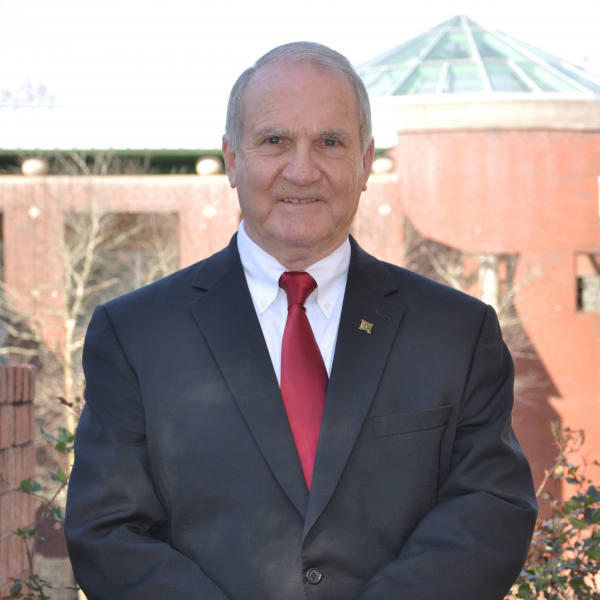
Arthur Cosby, Ph.D.
Read More
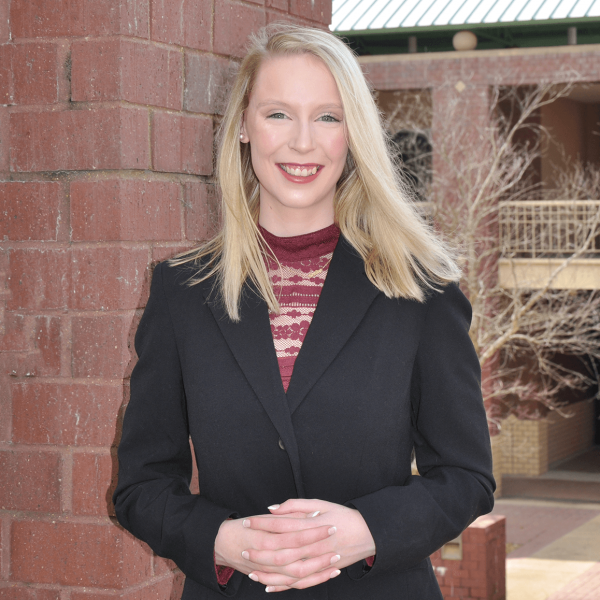
Shelby Gilbreath
Read More

Terri Hernandez, Ph.D.
Read More
Nishan Karki
Read More
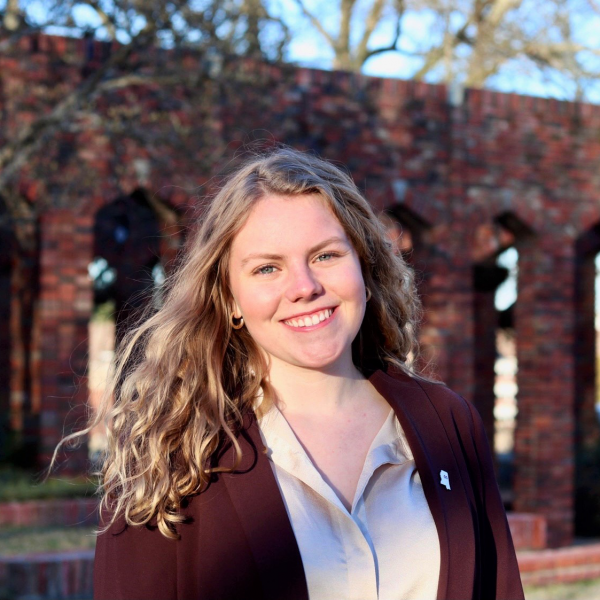
Mary Margaret Mitchell
Read More

Payton Ray
Read More
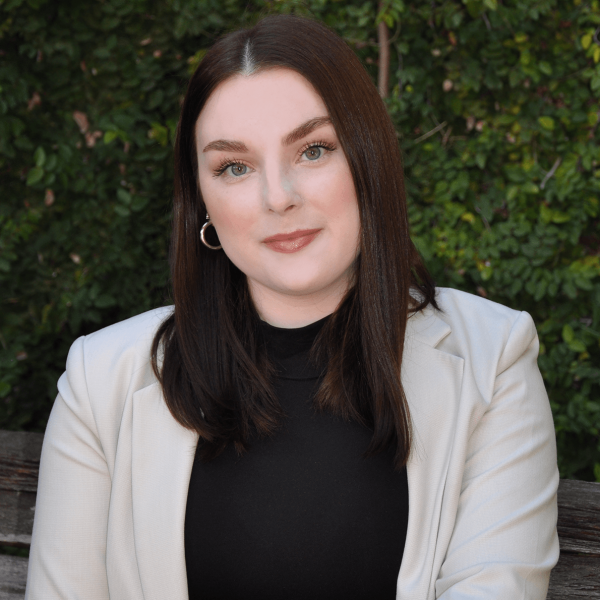
Taylor Ray
Read More
Lindsay Roberts
Read More

Edward Swan, Ph.D.
Read More
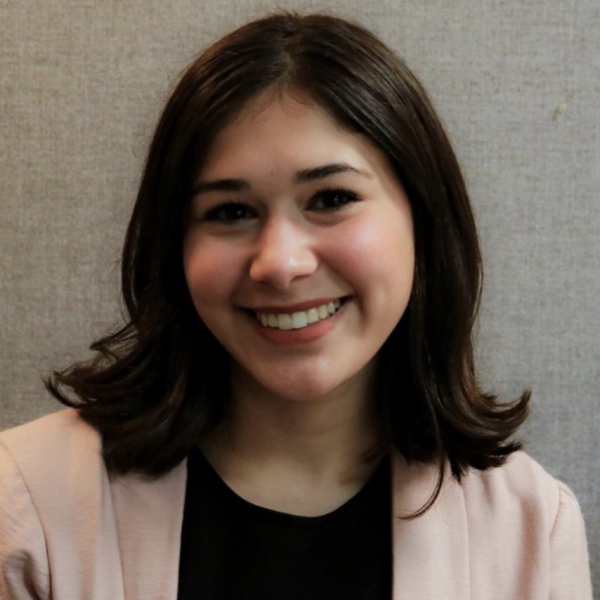
Georgiana Swan
Read More

Deborah Tolbert
Read More

Cindy L. Bethel, Ph.D.
Contribution to the Project: Dr. Cindy Bethel advised PI to develop the database paper, was heavily involved in the proposal preparation stage and provided input on the project through the DS3, NSF Rapid meetings, and personal mentorship for the investigator team.

Arthur Cosby, Ph.D.
Contribution to the Project: Dr. Arthur Cosby advised PI to develop the database paper, was heavily involved in the proposal preparation stage and provided input on the project through the DS3 meetings or personal mentorship for the investigator team.

Shelby Gilbreath
Contribution to the Project: Shelby Gilbreath assisted with preparing the NSF Rapid Grant proposal material. Specifically, she assisted in the literature review on topics related to criminology such as scams, misinformation, and domestic violence. She also gathered hashtags and keywords for the proposed search criteria on Twitter for the grant proposal in early summer of 2020, where she defined trending hashtags in association with Covid-19. In addition, Shelby led on the documentation provided for Twitter and Instagram for Social Media APIs. She monitored and hosted Instagram accounts in case of need for data collection through the API. Finally, Shelby also assisted with removing sensitive data from the final COPE-ID database.
Shelby was a part of the misinformation study team branch of the NSF Rapid project where she was involved in the following related tasks: 1) Literature review, 2) Looking into ‘Scam’ and ‘Misinformation’ definitions for Criminology, 3) Coded 1,100 documents for machine learning to identify and code for misinformation, and 4) Looked up hashtags and found meanings to be included in the codebook used for processing data for the misinformation study.
Shelby was a part of the misinformation study team branch of the NSF Rapid project where she was involved in the following related tasks: 1) Literature review, 2) Looking into ‘Scam’ and ‘Misinformation’ definitions for Criminology, 3) Coded 1,100 documents for machine learning to identify and code for misinformation, and 4) Looked up hashtags and found meanings to be included in the codebook used for processing data for the misinformation study.

Terri Hernandez, Ph.D.
Contribution to the Project: Dr. Terri Hernandez was responsible for developing the website for hosting the COPE-ID. A large part of the website development project was ensuring all safety precautions measures were implemented to ensure that the dissemination of the database is in line with federal regulations including Open Government Data Act and the General Data Protection Regulations.
Nishan Karki
Contribution to the Project: Nishan Karki worked with Taylor Ray in collecting data from Flickr, and Mastodon. He worked on using the Latent Dirichlet Allocation algorithm to find topics from millions of tweets and used these efforts in developing and presenting a poster for the undergraduate research symposium.
Nishan was a part of the Computer Science team and assisted in investigating multiple approaches used for detecting emotions in data from multiple social media platforms. Finally, he also led efforts in investigating data collection methods for Yelp, LiveJournal, and Quora.
Nishan was a part of the Computer Science team and assisted in investigating multiple approaches used for detecting emotions in data from multiple social media platforms. Finally, he also led efforts in investigating data collection methods for Yelp, LiveJournal, and Quora.

Mary Margaret Mitchell
Contribution to the Project: Mary Margaret Mitchell was the lead on gathering information about Flickr, Gab, Parler, LinkedIn, and Yelp. She documented the available data from each of these APIs. Although the team successfully collected data from Flickr, Gab, and Parler, we were not able to access publicly available information from LinkedIn or Yelp due to API or data related restrictions. For each of the platforms, Mary Margaret looked into what type of data could be found and used as well as the prevalence of COVID-19 related material found across the platforms. She also looked into information about their privacy policies concerning API use. Mary Margaret is also a part of the misinformation study team where she coded 1,100 posts and has conducted literature reviews for information on each of the platforms regarding population use. Additionally, she has been working on a literature review for the emotions based papers. Finally, at the close of the project, Mary Margaret also assisted with removing sensitive data from the final COPE-ID database.

Payton Ray
Contribution to the Project: Payton Ray assisted in the completion of the 8kun documentation by putting it into a more accessible template. Her main role on this project was to using machine learning, and rule-based approaches for detecting emotions in the collected data. Finally, at the close of the project, Payton also assisted with removing sensitive data from the final COPE-ID database.

Taylor Ray
Contribution to the Project: Taylor Ray generated documentation on the APIs for YouTube (platform used) and Pinterest (platform unused). She wrote Python scripts to collect data from 7/10 social media platforms (YouTube, Twitter, 4chan, 8kun, Parler, Mastodon, and Flickr). She drew samples from the platforms for both the Scam Study and the general COPE-ID database paper. She developed a multinomial Naive Bayes model for predicting misinformation-related features of COVID-19 posts for the Scam Study portion of the project. She also heavily researched different sentiment analysis techniques to investigate which techniques are best suited for our social media data (VADER Sentiment, multinomial Naive Bayes, Hugging Face’s pipeline, etc.).
Taylor also wrote a technical blog on the VADER Sentiment tool, “Using vaderSentiment to Intuitively Predict the Sentiment of Social Media Posts”, published on the DS3 SSRC lab website. Likewise, she presented “Using Sentiment Analysis Techniques to Discover Emotions Conveyed on Twitter and Reddit” at Mississippi State University’s Spring 2021 Graduate Student Research Symposium and won 1st place in the master’s division of oral presentations for physics, mathematics, and computational sciences/engineering.
In addition, she developed a web application, displayed on the COPE-ID home page, using the Flask web framework that allows users to generate the sentiment polarity (i.e., “positive”, “neutral”, or “negative” nature) and/or misinformation-related features of a single COVID-19 social media post by utilizing the logic of two separate machine learning models. She deployed the web application on Google’s cloud service, Google Cloud Platform. Finally, during this project Taylor worked on her master’s thesis, which was based on the start to finish process of applying a multinomial Naive Bayes model to extract the sentiment polarities of the COVID-19 posts collected for this project.
Taylor also wrote a technical blog on the VADER Sentiment tool, “Using vaderSentiment to Intuitively Predict the Sentiment of Social Media Posts”, published on the DS3 SSRC lab website. Likewise, she presented “Using Sentiment Analysis Techniques to Discover Emotions Conveyed on Twitter and Reddit” at Mississippi State University’s Spring 2021 Graduate Student Research Symposium and won 1st place in the master’s division of oral presentations for physics, mathematics, and computational sciences/engineering.
In addition, she developed a web application, displayed on the COPE-ID home page, using the Flask web framework that allows users to generate the sentiment polarity (i.e., “positive”, “neutral”, or “negative” nature) and/or misinformation-related features of a single COVID-19 social media post by utilizing the logic of two separate machine learning models. She deployed the web application on Google’s cloud service, Google Cloud Platform. Finally, during this project Taylor worked on her master’s thesis, which was based on the start to finish process of applying a multinomial Naive Bayes model to extract the sentiment polarities of the COVID-19 posts collected for this project.
Lindsay Roberts
Contribution to the Project: Lindsay Roberts developed python scripts to pull data from Redditt, Tumblr, and Gab. She also worked on identifying emotions during COVID-19 pandemic based on Twitter tweets using a rule-based approach by utilizing the NRCLex database. Finally, Lindsay led efforts investigating data collection methods for social media platforms such as Blogger, Mewe, and Medium.

Edward Swan, Ph.D.
Contribution to the Project: Dr. J. Edward Swan II advised the team on the misinformation project regarding the machine learning models. He also attended NSF Rapid meetings and provided mentorship to the investigator team.
Biography: Dr. J. Edward Swan II is a Professor of Computer Science and Engineering at Mississippi State University. He holds a B.S. (1989) degree in computer science from Auburn University and M.S. (1992) and Ph.D. (1997) degrees in computer science from Ohio State University, where he studied computer graphics and human-computer interaction. Before joining Mississippi State University in 2004, he spent seven years as a scientist at the Naval Research Laboratory in Washington, D.C. Dr. Swan’s research has centered on the topics of augmented and virtual reality, perception, data science, empirical methods, human-computer interaction, human factors, and visualization. Currently, he is studying the perception and technology required to give virtual objects definite spatial locations, including depth and layout perception and depth presentation methods, as well as empirical techniques for evaluating and validating visualizations. His research has been funded by the National Science Foundation, the Department of Defense, the National Aeronautics and Space Administration, the Naval Research Laboratory, and the Office of Naval Research. Dr. Swan is a member of ACM, IEEE, and the IEEE Computer Society. He has served many roles in the technical communities of IEEE Virtual Reality (VR), IEEE International Symposium on Mixed and Augmented Reality (ISMAR), and IEEE Visualization. He is currently the chair of the IEEE VR steering committee. Previously, he served as one of the general chairs of VR 2021 and VR 2020, as well as a program chair for ISMAR 2017, ISMAR 2016, VR 2015, and VR 2014. He is also a member of the ISMAR steering committee. In 2017 and 2018, he served as Interim Department Head of Computer Science and Engineering at Mississippi State University.
Biography: Dr. J. Edward Swan II is a Professor of Computer Science and Engineering at Mississippi State University. He holds a B.S. (1989) degree in computer science from Auburn University and M.S. (1992) and Ph.D. (1997) degrees in computer science from Ohio State University, where he studied computer graphics and human-computer interaction. Before joining Mississippi State University in 2004, he spent seven years as a scientist at the Naval Research Laboratory in Washington, D.C. Dr. Swan’s research has centered on the topics of augmented and virtual reality, perception, data science, empirical methods, human-computer interaction, human factors, and visualization. Currently, he is studying the perception and technology required to give virtual objects definite spatial locations, including depth and layout perception and depth presentation methods, as well as empirical techniques for evaluating and validating visualizations. His research has been funded by the National Science Foundation, the Department of Defense, the National Aeronautics and Space Administration, the Naval Research Laboratory, and the Office of Naval Research. Dr. Swan is a member of ACM, IEEE, and the IEEE Computer Society. He has served many roles in the technical communities of IEEE Virtual Reality (VR), IEEE International Symposium on Mixed and Augmented Reality (ISMAR), and IEEE Visualization. He is currently the chair of the IEEE VR steering committee. Previously, he served as one of the general chairs of VR 2021 and VR 2020, as well as a program chair for ISMAR 2017, ISMAR 2016, VR 2015, and VR 2014. He is also a member of the ISMAR steering committee. In 2017 and 2018, he served as Interim Department Head of Computer Science and Engineering at Mississippi State University.

Georgiana Swan
Contribution to the Project: Georgiana Swan (Georgie) researched 4 Chan, Tik Tok, and Mastodon and led documentation on each of those three platforms. In doing so, Georgie examined the platform’s privacy policies, researched the basics of how posting works on the platforms, and found example posts that mentioned COVID-19.
Georgie was also heavily involved in conducting literature reviews for the project. Specifically, she read and provided summaries of articles pertaining to the rise of COVID-19 and its effects on mental health. Georgie also helped with the domestic violence literature review and read articles justifying why researchers should use Twitter. Further, she read articles pertaining to her assigned platforms (Tik Tok, 4 Chan, and Mastodon) to learn more about the user base of the platforms. She also summarized articles that covered the rise in scams and what the most common ones are.
Additional tasks related to data collection included contributing to a collection of information on scams, such as keywords used in social media that were associated with cybercrime. In the Fall of 2020, Georgie presented to our team a website that collected and labeled different types of scams (phishing, malware, etc.). Towards the close of the project, Georgie also assisted with removing sensitive data from the final COPE-ID database.
For the misinformation project, Georgie was the lead on the initial literature search pertaining to misinformation. Georgie was second author on the misinformation project, due to the number of contributions she has made to the project. Finally, for this project, Georgie coded 1,100 posts from the different platforms, and presented the research work at the Undergraduate Research Symposium.
Georgie was also heavily involved in conducting literature reviews for the project. Specifically, she read and provided summaries of articles pertaining to the rise of COVID-19 and its effects on mental health. Georgie also helped with the domestic violence literature review and read articles justifying why researchers should use Twitter. Further, she read articles pertaining to her assigned platforms (Tik Tok, 4 Chan, and Mastodon) to learn more about the user base of the platforms. She also summarized articles that covered the rise in scams and what the most common ones are.
Additional tasks related to data collection included contributing to a collection of information on scams, such as keywords used in social media that were associated with cybercrime. In the Fall of 2020, Georgie presented to our team a website that collected and labeled different types of scams (phishing, malware, etc.). Towards the close of the project, Georgie also assisted with removing sensitive data from the final COPE-ID database.
For the misinformation project, Georgie was the lead on the initial literature search pertaining to misinformation. Georgie was second author on the misinformation project, due to the number of contributions she has made to the project. Finally, for this project, Georgie coded 1,100 posts from the different platforms, and presented the research work at the Undergraduate Research Symposium.

Deborah Tolbert
Contribution to the Project: Deborah Tolbert contributed a full semester of work to the NSF Rapid project through her Social Work Internship. In doing so, Deborah led on the documentation for 8kun and Facebook. Additionally, she led on identifying scams related to COVID-19 to identify possible search criteria for studying the spread of scams online. Finally, Deborah assisted with literature reviews for the project.
 https://orcid.org/0000-0001-8636-497X
https://orcid.org/0000-0001-8636-497X